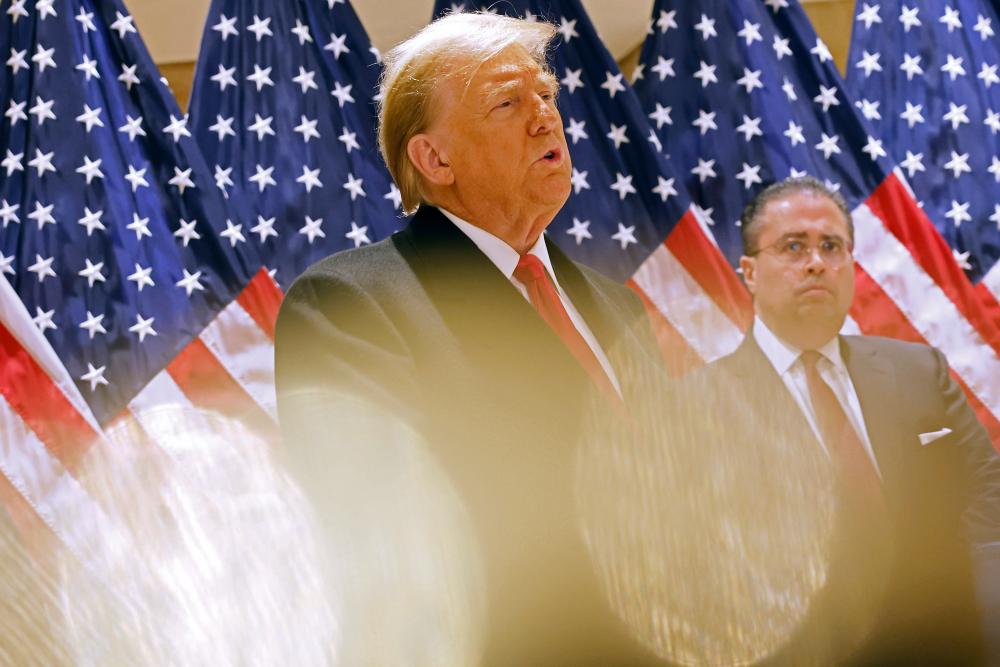The US district judge Aileen Cannon received proposed trial start dates from Trump and the special counsel Jack Smith more than a month ago in advance of a hearing ostensibly to settle the matter in Fort Pierce, Florida, but she has still not decided when the proceeding will begin.
Related: Trump’s hush-money trial date is set. Here’s what to expect
As a result, Trump has been able to avoid filing certain pre-trial motions that have to be completed before the case can proceed to trial, playing into his strategy of trying to delay the case as much as possible before the 2024 election in November.
Trump’s legal strategy for all of his criminal cases has been to delay, under the calculus that winning re-election would enable him to appoint a loyalist as attorney general who could direct prosecutors to drop the case, or pardon himself if he was convicted.
The Trump legal team proposed an August trial date to Cannon last month, seemingly as part of a gambit to weaponize the classified documents case in Florida to block off his legal calendar and prevent the 2020 election interference case in Washington from going to trial before the election.
But Trump has not had to strain himself to engineer such an outcome: Cannon’s own inaction in the case has made a trial in July unrealistic.
Trump was indicted in federal district court last year for violating the Espionage Act in keeping classified documents at his Mar-a-Lago club, which means his case is proceeding to trial under the complicated and sequential rules of the Classified Information Procedures Act, or Cipa.
The next stage of Cipa in Trump’s prosecution is section 5, where Trump has to disclose to prosecutors in a notice the specific classified documents they want to use at trial. It is considered a key step because it protects against any surprise disclosure of national security secrets at trial.
The judge would probably need to give Trump several weeks to draft a specific enough notice. If Trump, like most defendants, files too vague a notice, prosecutors would have to challenge the filing and force Trump to give more detail about which documents he intends to use in his defense.
But when prosecutors suggested a July trial date, they envisioned an 18 March deadline for Trump to file his section 5 notice, a date that expired two weeks ago. Additionally, prosecutors did not include in their proposed schedule any time for litigation if Trump’s notice was too vague.
The situation means that even if Cannon issued new deadlines for Cipa now, the timeline as suggested by prosecutors would potentially be multiple weeks behind schedule, making it more likely that Cannon is left with no choice but to adopt Trump’s proposed schedule and August trial date.
Part of the problem with the Trump classified documents case is that some of the issues are inherently complex. But Cannon has also given herself little breathing space by allowing a backlog of unresolved motions – some of which bear on the pre-trial timetable itself – to build up on the docket.
Some of the issues can be traced back to a fateful decision the judge made early on, when she decided that the case was so high profile that proceedings should be as publicly accessible as possible, and gave Trump a basis to ask to unseal materials governed by a protective order at every turn.
That decision appears to have significantly contributed to the logjam.
For instance, Trump made a sprawling request in January for additional discovery materials about supposed bias by the intelligence community that would help his defense. In that filing, he also requested the attached exhibits to be made public, except for email addresses contained in the documents.
The two requests drew sharp responses from prosecutors, who urged the judge to deny Trump’s effort to get more discovery and to deny the request to unseal, because it would reveal the identity of potential trial witnesses and identify US intelligence products.
In that dispute alone, Cannon needed to review both Trump’s motion itself and the exhibits, and decide whether to make them public. In that way, Cannon managed in some ways to double her workload on what would have otherwise been a single motion that she needed to review.
To make matters more complicated, the situation with Trump’s request to unseal the exhibits – which Cannon granted but has not ruled on prosecutors’ request that she reconsider – now has had a direct bearing on the trial schedule.
Recently, Trump’s lawyers asked the judge for an extra 10 days to file papers relating to a separate set of motions to have the case dismissed. One of their reasons was they needed a decision on the discovery request first, which Cannon presumably cannot rule on until she first decides what to do about its contested exhibits.
